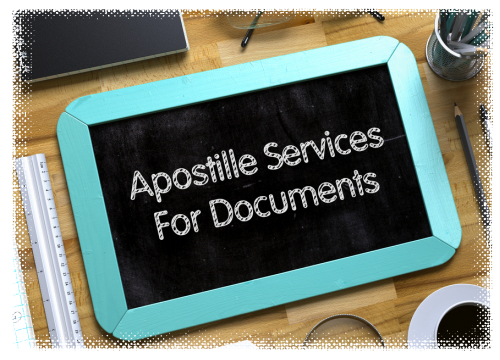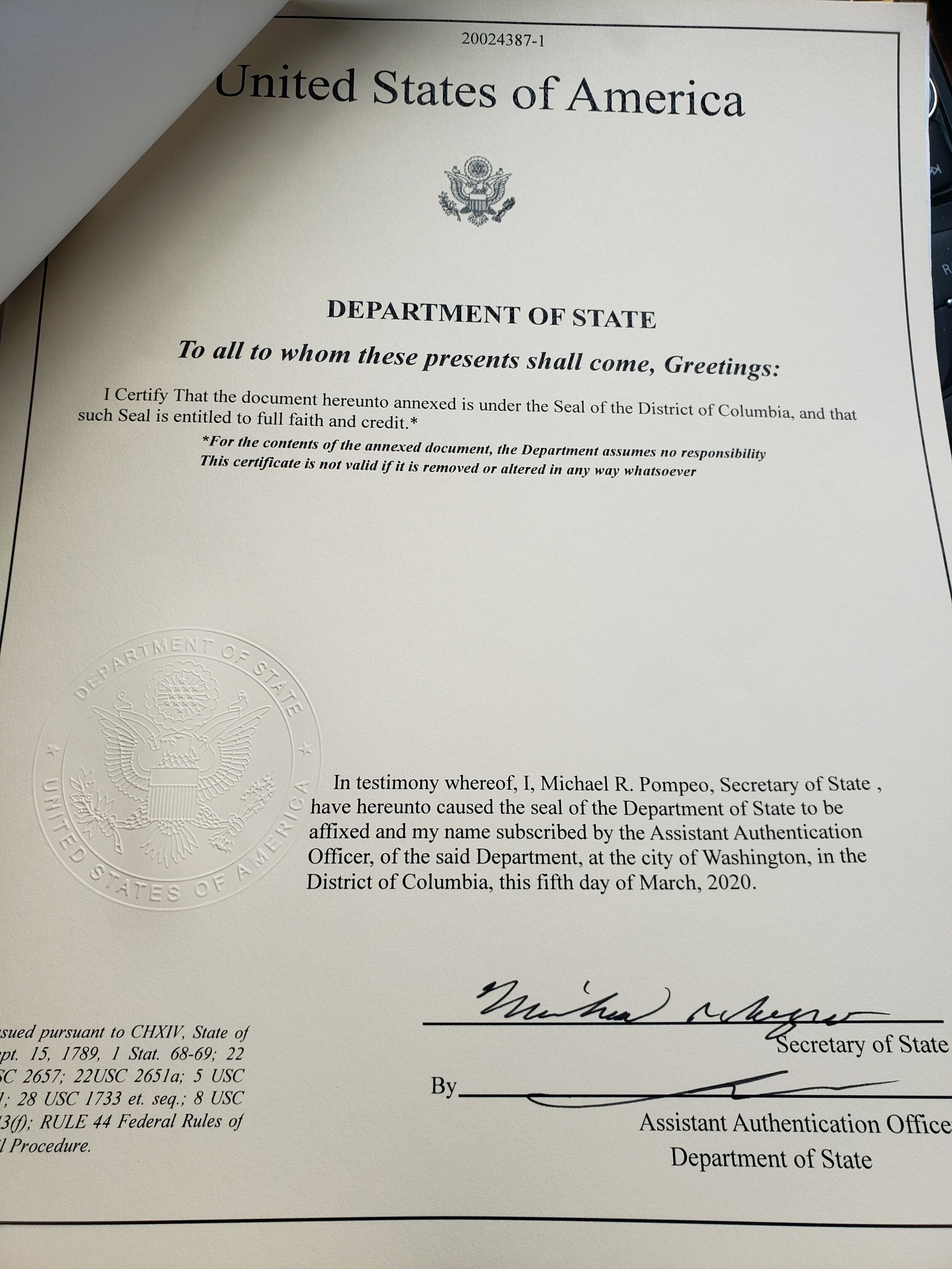Complete Guide to Apostille in Houston, Texas
Complete Guide to Apostille in Houston, Texas
Blog Article
Revealing the Essential Duty of Apostille in Simplifying International Paper Validation Processes
In the world of worldwide affairs, the recognition of files holds paramount relevance. In the middle of the web of governmental procedures and differing legal needs across different nations, the function of apostille arises as a crucial facilitator in improving the procedure. By affixing an apostille to a record, it goes through a simplified recognition that is recognized throughout various countries, therefore easing the worries connected with cross-border record authentication. As we look into the details of this specialized accreditation, the subtleties between apostille and typical validation approaches come to light, dropping a brand-new viewpoint on the effectiveness and effectiveness of this important yet typically overlooked process.
Comprehending Apostille Essentials
In the world of record recognition for worldwide use, understanding the fundamental concepts of apostille verification is vital. An apostille is a specific certificate that verifies the credibility of a record for usage in foreign nations that are component of the Hague Apostille Convention.
Apostilles are frequently provided for vital documents such as birth certifications, marriage certifications, and scholastic transcripts. The key parts of an apostille include the name of the country where it was released, the name of the person authorizing the paper, the capability in which the individual authorized the document, the seal or stamp of the releasing authority, and the date of issuance. By understanding these basic elements of apostille authentication, people and organizations can browse the complexities of international paper validation with self-confidence and effectiveness.
Benefits of Apostille for Recognition

Moreover, the apostille streamlines the verification procedure by offering a standard certificate that verifies the credibility of the file, such as birth certifications, marriage licenses, notarized actions, and scholastic transcripts. This standard layout decreases the threat of rejection because of strangeness with foreign papers, hence improving the effectiveness of cross-border purchases.
Furthermore, the apostille aids in getting rid of the requirement for several layers of authentication by federal government authorities, as the apostille itself symbolizes the file's credibility. This not only increases the document validation procedure yet also decreases the connected prices and bureaucratic hurdles, making it a practical and cost-efficient option for businesses and individuals engaging in worldwide activities.
Streamlining Cross-Border Paper Verification
Streamlining cross-border file verification, the apostille gets rid of the need for frequently difficult and prolonged validation treatments typically called for when providing records in foreign nations. By attaching an apostille to a document, the providing country licenses the authenticity of the paper, making it readily appropriate in other nations that are component of the Hague Apostille Convention.
Furthermore, the apostille system boosts the safety and credibility of cross-border paper validation by supplying a clear and internationally approved mechanism for verifying the legitimacy of documents. This simplification of authentication refines not only benefits people and businesses seeking to run you can try here internationally however additionally fosters smoother communication and cooperation in between countries by making sure the integrity of shared documentation.
Value of Apostille in Legalisation

Apostille ensures that lawful papers such as birth certifications, marital relationship certifications, powers of attorney, and court records are identified and approved in foreign territories. The apostille process minimizes the governmental obstacles and time-consuming procedures normally associated with document legalisation, making worldwide deals more effective and lawfully binding.
Apostille Vs. Typical Recognition Methods
Contrasting apostille with conventional validation techniques reveals distinctive distinctions in the effectiveness and simpleness of document verification processes for worldwide use. Apostille, as a standardized and check that structured technique developed by the Hague Convention, offers a much more straightforward method to validating records contrasted to traditional methods. Conventional validation processes usually entail several steps, consisting of notarization, accreditation by government authorities, and consular legalisation, which can be lengthy and troublesome.
Apostille, on the other hand, simplifies this procedure by accrediting files with a single apostille certificate released by a proficient authority in the country where the record originates (Houston TX Apostille). This certification is recognized by all member countries of the Hague Convention, getting rid of the demand for more embassy legalisation. As a result, apostille substantially minimizes the time and effort needed for file validation, making it a preferred selection for organizations and people associated with global purchases
Final Thought
Finally, apostille plays a vital role in streamlining global document validation procedures by supplying a standard approach of authentication that is recognized across participating countries. By streamlining the legalization process, apostille view publisher site gets rid of the requirement for several layers of recognition, decreasing time and expenses connected with cross-border record verification. This efficient system benefits people and companies seeking to make use of international files for legal functions, making sure smoother worldwide transactions.
By attaching an apostille to a file, it goes through a simplified validation that is recognized across countless nations, thus alleviating the worries connected with cross-border file authentication. Streamlining cross-border document authentication, the apostille eliminates the requirement for typically challenging and extensive recognition procedures typically called for when offering papers in international nations. By affixing an apostille to a paper, the issuing nation certifies the authenticity of the paper, making it easily acceptable in other countries that are part of the Hague Apostille Convention. By fastening an apostille to a record, the issuing country certifies the authenticity of the trademark, seal, or stamp on the file, making it valid for use in another member nation of the Hague Apostille Convention without the requirement for more legalisation.

Report this page